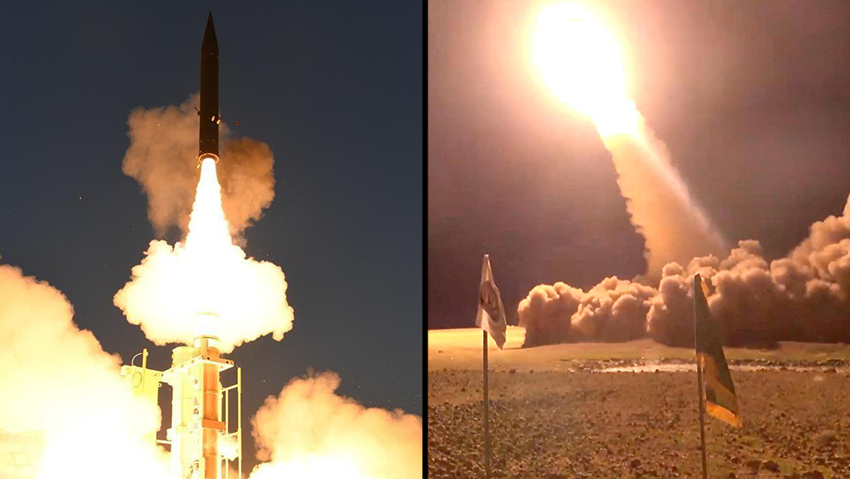Over two days, two attempts to intercept Houthi missiles launched from Yemen failed. On the night between Wednesday and Thursday, the IDF claimed to have achieved a partial interception of the missile, though its warhead exploded and struck a school in Ramat Efal, near Tel Aviv. By the night between Friday and Saturday, it was already clear the interception attempt had failed: several interceptors launched at the ballistic missile missed their target, and it hit the center of a public park in Jaffa, injuring a dozen people and causing damage to nearby apartments.
IDF in Jaffa following Houthi missile strike
(Video: IDF Spokesperson's Unit)
“The fire is scattered; I don’t see an escalation. But it’s evident that even a single missile heading toward central Israel sends many people into shelters,” said Tal Inbar, an expert in aviation, space and missile policy, and a senior research fellow at the Missile Defense Advocacy Alliance, during an interview with Ynet studio on Sunday morning.
“Every interception is analyzed. The more interceptors are deployed, the better the performance of the systems becomes,” he added.
Inbar also referred to the Houthis’ capabilities. “I don’t know of a reliable source that can specify the number of missiles they possess, but we do know the types of missiles. Ultimately, this is Iranian import, guided deeply by them. Not only do we learn from interceptions, but so does the other side.”
Brigadier General (Res.) Ran Kochav, former commander of the Air Defense Array, stated: “The cases are different, but the proximity is no coincidence. Both are Iranian missiles launched by the Houthis. In the first case in Ramat Efal, despite the partial interception and the approximate hit on the missile, significant parts, including the warhead, fell. Fortunately, there were no casualties, but there was significant damage. On Saturday morning, however, there was a miss – a significant failure without interception. There was a late warning, and the missile hit the ground.”
However, Kochav asserted that he does not believe this incident indicates the use of advanced weaponry. “When there’s an interception success rate of approximately 90%, one out of every 10 launches fails to be intercepted. Over 37,000 rockets and missiles have been launched toward Israel from Yemen, Iran, Syria, Lebanon and Gaza. Sometimes it’s a technical malfunction; other times, operational error.”
Get the Ynetnews app on your smartphone: Google Play: https://bit.ly/4eJ37pE | Apple App Store: https://bit.ly/3ZL7iNv
Kochav addressed the delayed alarms in Jaffa and its surroundings. “There’s a mutual responsibility between civilians and the Home Front Command, and this time it was a malfunction – perhaps even human error. The warning time provided was shorter than required, and it’s very possible that this needs to be extended or corrected. Generally, there’s always a dilemma about when and how to activate the warning," he said.
“I trust my colleagues in the Air Force to improve. I don’t believe the guidelines for civilians need to change, but this issue should be addressed within the military, within the Home Front Command,” he concluded, adding: “This pattern of the Houthis firing at us every day or two must stop. I’m not sure the answer lies in tit-for-tat responses.”




